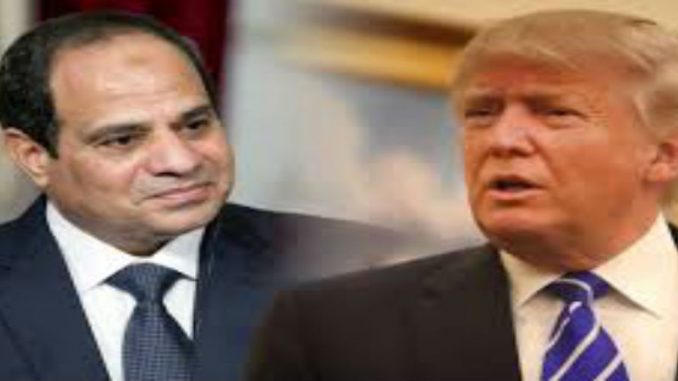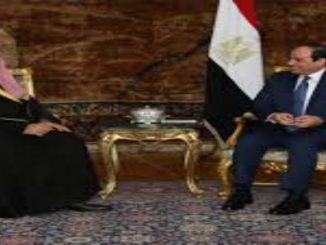
Sources in Washington predicted that the US administration would reduce its economic aid to Egypt by half, registering $75 million instead of $150 million annually, while US military aid will stay at the same level, amounting to $1.3 billion.
On the sidelines of the door-knocking delegation in Washington, sources said that the reduction in US aid has nothing to do with the Egyptian-American political relation.
They also noted that there is a US trend to decline its aid to all countries, especially after the reduction of the US state department’s financial allocations by 29%.
In this context, Head of the US-Egypt Business Council (USEBC), Omar Mahana, said that the US would cut its economic aid to several countries, not only Egypt, and the decision does not reflect Trump’s political position towards Egypt.
Anis Aclimandos, president of the American Chamber of Commerce in Egypt (AmCham), expected that the reduction of US aid will not affect Egypt, noting that the Egyptian side has not benefited from this aid in the last four years.
According to Paul Salem,vice president of the Institute for Middle East Studies in Washington, said that the reason behind the reduction that many members of the new US administration aim primarily to protect the US national economy; therefore, they tend to reduce foreign expenditures.
However, Salem pointed out that the Trump administration’s good relationship with the Egyptian side will boost the Egyptian economy, in a way that does not harm the US local economy.
According to Salem, Egypt does not have as strong commercial exchange with the US as China or Mexico do, even though the Trump administration has limited its economic relations with these countries to protect its economy.
He noted that the new US administration has not settled its position towards some bilateral issues with Egypt yet.
On the other hand, the former US ambassador to Yemen, Gerald M. Feierstein, said the US administration’s recognition of the Egyptian market’s importance and the economic reform measures adopted by the Egyptian government have contributed to obtaining the International Monetary Fund (IMF) loan and created a suitable investment atmosphere for American business people.
In fact,Egypt is facing one of the harshest economic downfall in its history.
Under Al-Sisi’s reign,tourism and foreign investments, which were the two major resources of hard currency, have withdrawn as a result of political unrest and security instability.
As a result, the Central Bank of Egypt (CBE) devalued the Egyptian currency in March.
The devaluation of the Egyptian pound and the shortage of foreign currency have flourished the black market on the currency expense.
In this context, Abdel Fattah al-Sisi has chosen to take the Egyptian people through the hard path by seeking to secure a loan from the International Monetary Fund(IMF).
In this context, Egypt’ s al-Sisi has worked to fulfill the IMF economic reform program to secure the loan.
Last November, the International Monetary Fund’s executive board has approved Egypt’s request to secure $12 billion loan facility after Egypt met its requirements.
On August 30 Egypt started its first steps towards the loan when Egypt’s parliament approved a long-awaited law introducing a value-added tax (VAT) of 13 %, rising to 14% in the next fiscal year.
On November 3, the Central Bank of Egypt floated the Egyptian pound and gave up trying to peg the currency to the US dollar allowing it to devalue by almost half.
On November 4, Egypt took another unprecedented decision, which has always been abandoned by former leaders in fear of public unrest, to cut subsidies for fuel leading to jump in prices, in addition to the introduction of the value-added tax to raise revenues.



